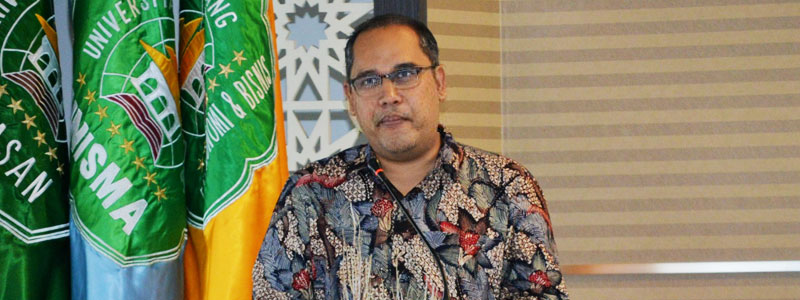Summary. The vital contribution of Micro, Small, and Medium Enterprises (MSMEs) to the economic growth of Malaysia and Indonesia, particularly in post-pandemic recovery, is underscored by their role in employment, GDP, and innovation. Addressing the challenges MSMEs face, including financial strain, technological gaps, and the need for digital literacy, is essential for their survival and growth. Tailoring research and policies to the unique economic, cultural, and regulatory contexts of each country is crucial for effective support. Emphasizing the importance of understanding socio-cultural influences on MSME operations, a contextual approach in studies and policy-making is advocated to ensure sustainable business practices and contribute to national economies.
The indispensable role of Micro, Small, and Medium Enterprises (MSMEs) in catalyzing the future economic growth of Malaysia and Indonesia is a focal point of academic and policy discourse, especially in the context of post-pandemic recovery and resilience-building. As pivotal contributors to employment, GDP, and innovation within these nations, MSMEs embody the entrepreneurial dynamism and adaptability crucial for navigating the complexities of global economic landscapes. Their sustained survival and growth are imperative for driving national economic development, necessitating robust support mechanisms, including policy interventions, financial inclusion strategies, and technological advancements.
Following this understanding, Prof. Zulnaidi Yaacob from Universiti Sains Malaysia (USM) delivered profound insights at
Faculty of Economics and Business, University of Islam Malang, addressing the critical challenges Micro, Small, and Medium Enterprises (MSMEs) in Malaysia and Indonesia face in the aftermath of the Covid-19 pandemic.

Prof. Yaacob began by detailing the multifaceted challenges that have emerged for MSMEs post-pandemic, including widespread layoffs and the difficulties imposed by social distancing policies. He highlighted the financial strain on these businesses, exacerbated by a significant knowledge gap in finance and challenges in generating new income. The reliance on savings, coupled with limited access to banking services, inadequate cash flow management, and a lack of technological infrastructure, has put MSMEs in a precarious position. During the pandemic, the reliance on basic digital platforms like WhatsApp, Instagram, or Facebook proved to be insufficient, underscoring the need for more sophisticated technological solutions.
To tackle these challenges, Prof. Yaacob recommended a comprehensive approach. He advocated for the provision of advanced digital platforms to MSMEs at no cost, alongside digital literacy training and effective digital marketing strategies. The goal is to equip these enterprises with the tools and knowledge necessary to navigate the post-pandemic world successfully.
Further elaborating on his insights, Professor Yaacob stressed the necessity of policies and financial incentives to foster trust and optimism among MSME owners. He advocated for financial literacy training as a means to enhance the financial well-being of these enterprises, thereby contributing to sustainable business practices and the national economy. Moreover, Professor Yaacob highlighted the critical need for research to be meticulously tailored to the unique circumstances of Small and Medium Enterprises (SMEs) in Indonesia and Malaysia, fully recognizing the distinct economic, cultural, and regulatory landscapes that define each country. This nuanced approach is essential for a comprehensive understanding of the varied dynamics influencing SME success and operations. He pointed out, for example, the significant influence of Indonesia's vast archipelagic structure on the regional differences in SME challenges and characteristics, in stark contrast to Malaysia's more homogenized business environment, shaped by its centralized governance. These observations underline the necessity for policies and strategies that are finely attuned to the specific factors affecting SMEs in each nation, ensuring that interventions are both effective and contextually relevant.
Building on this, Professor Yaacob also pointed to the importance of considering the socio-cultural influences on SME operations within each country. He noted how Indonesia's rich cultural diversity and strong community ties could uniquely impact SME development, setting it apart from Malaysia's more homogeneous cultural landscape. Recognizing these critical differences is essential for crafting effective policies and strategies that cater to the specific needs of SMEs in each country. By urging researchers to adopt a contextual approach in their studies, Professor Yaacob aims to foster a deeper understanding of the complexities facing SMEs in Indonesia and Malaysia. This approach, he believes, will lead to distinct research findings and implications, ensuring a more nuanced comprehension of SME dynamics and facilitating the creation of supportive environments where these enterprises can flourish.
Scholars' Insight, a segment in Jema: Jurnal Ilmiah Bidang Akuntansi dan Manajemen from the Faculty of Economics and Business, University of Islam Malang, offers innovative research ideas from global scholars. It enriches insights in accounting and management, sharing collaborative findings and best practices. Readers gain inspiration for further research and a deeper understanding of current developments, fostering academic networks and cross-institutional collaborations.




